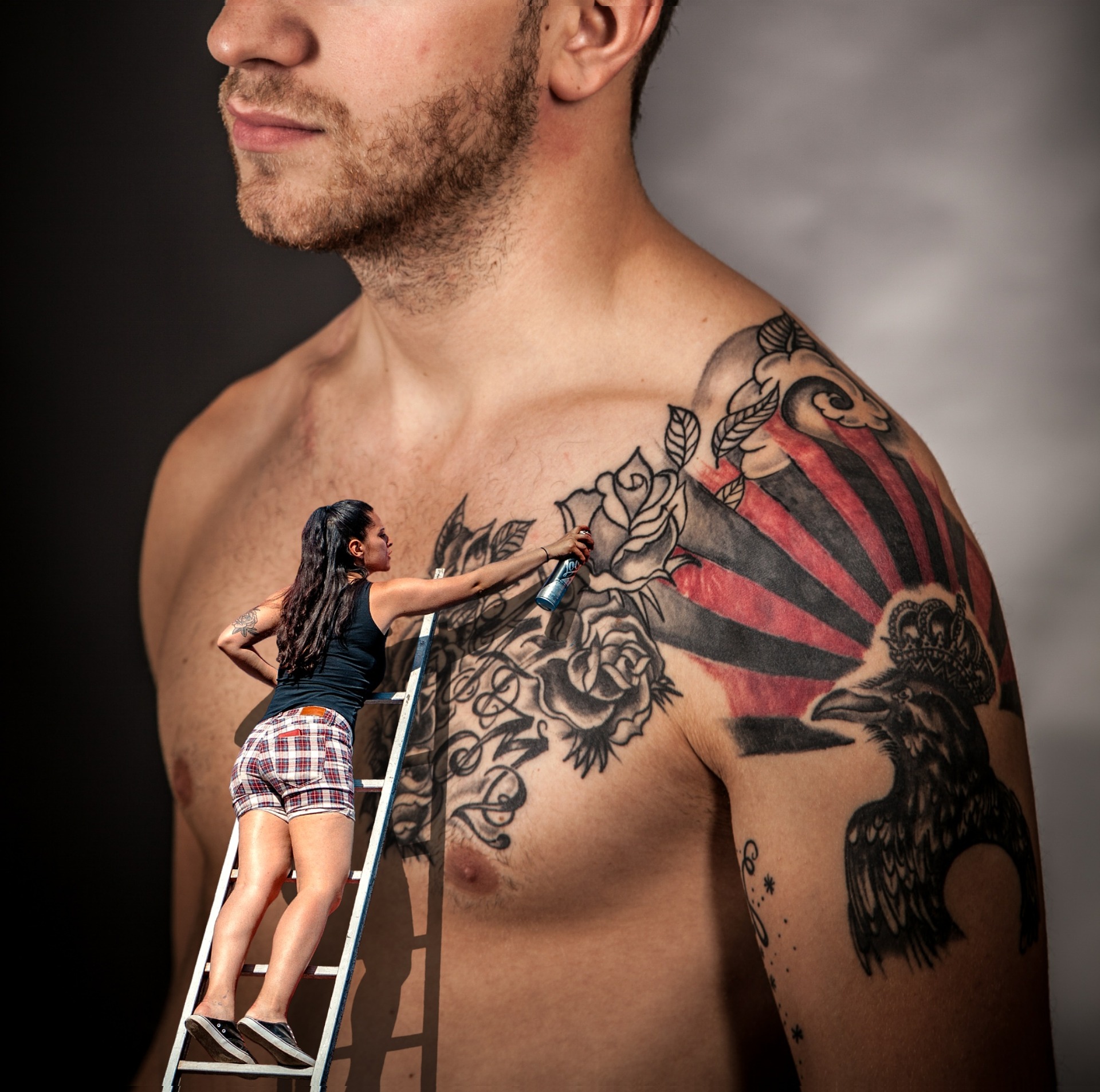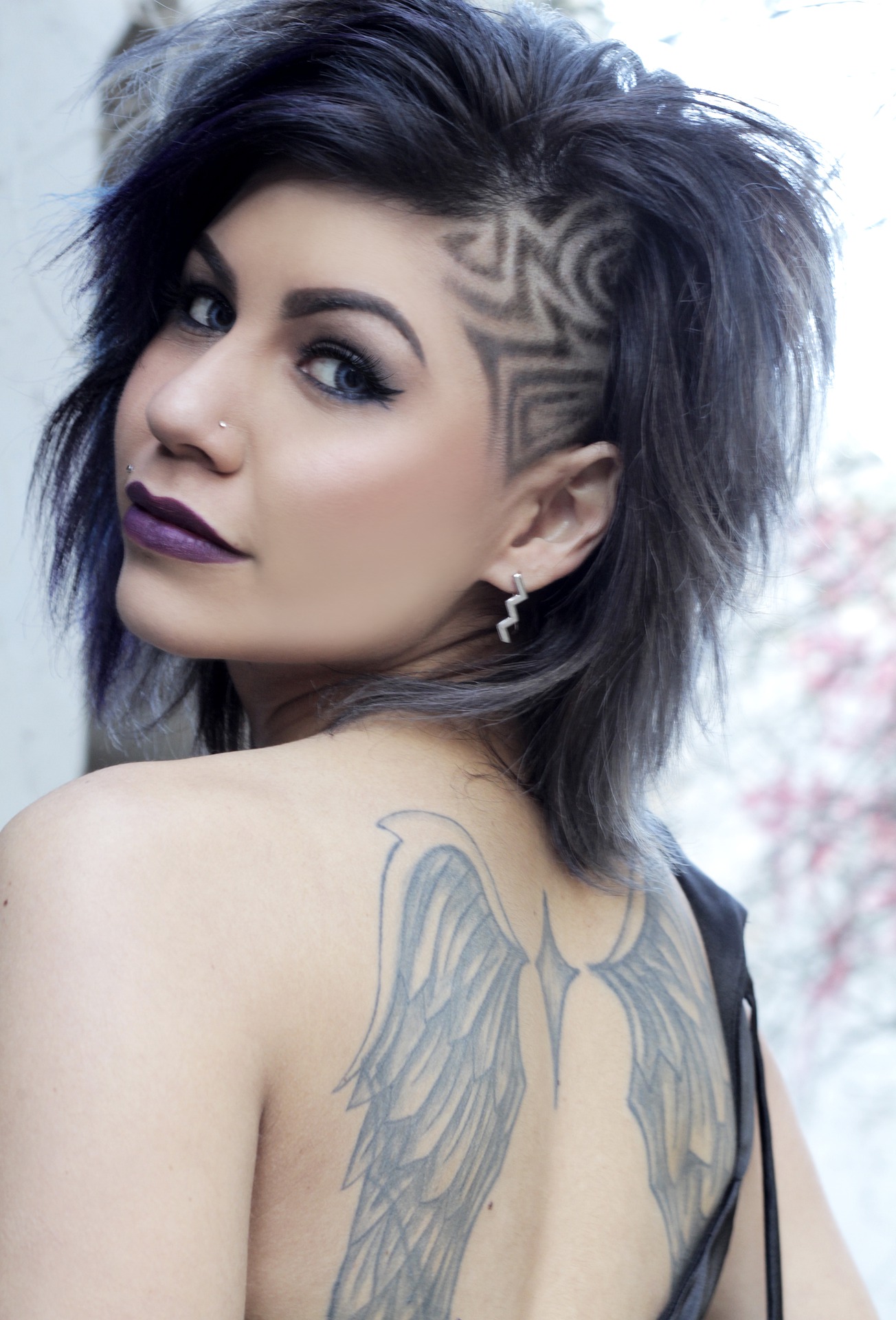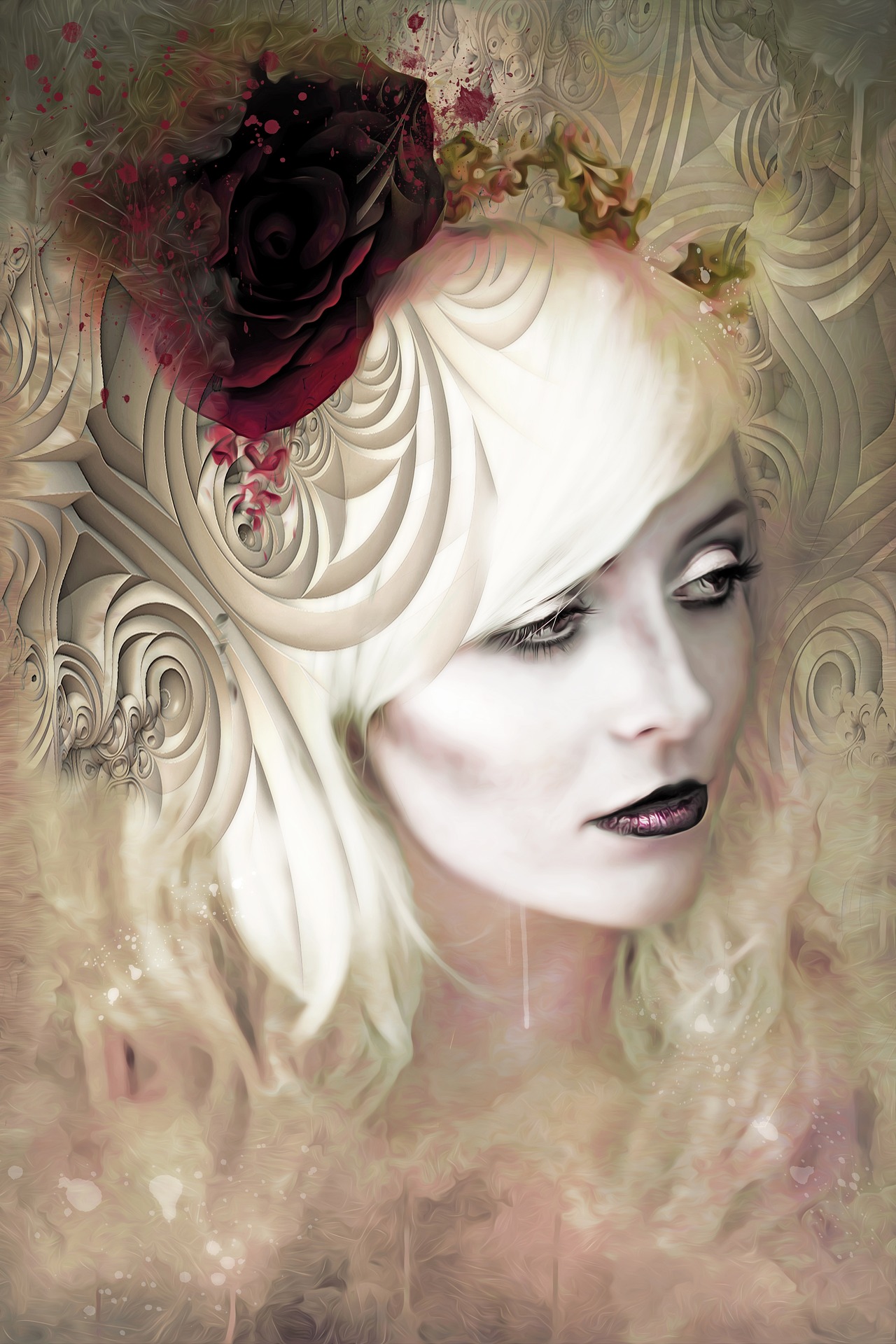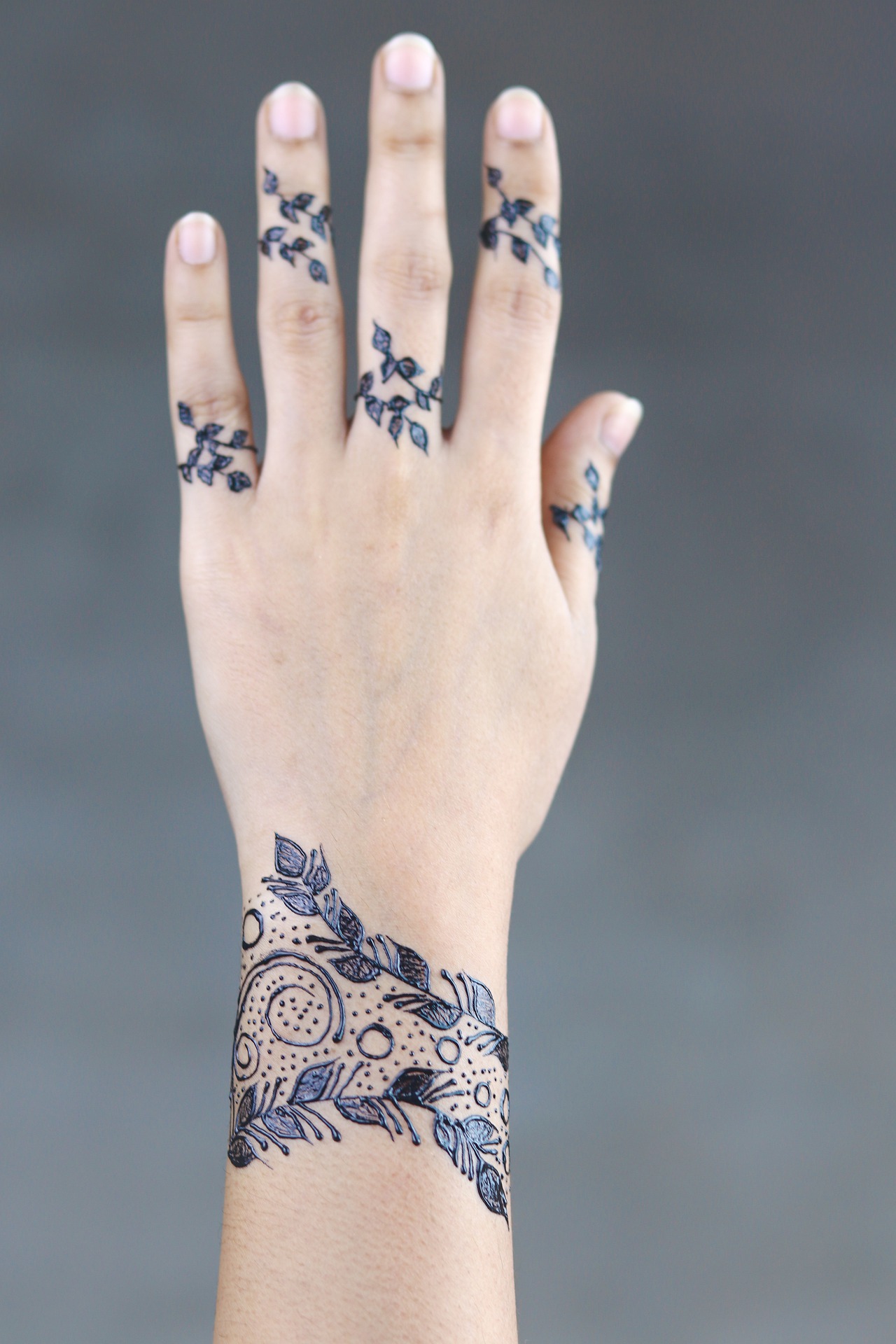Negative reactions can occur soon after getting a tattoo and even years later. Even if you get tattooed by a licensed tattoo artist and you follow them, your skin can react in strange and unexpected ways. If you have a reaction, here’s what can happen and what you can do. Don’t panic, this isn’t your tattoo falling off, it’s just the excess ink being erased from the surface of your skin.
A tattoo may be itchy if it contains dyes made with plastic pigments that irritate the skin. Some people are allergic to these pigments and experience itchiness in response to their presence. Itchiness should fade away after several days and can be alleviated with an ice pack until it flakes off.
As it heals, some of this ink will slowly flow back into the skin and tattoo. If you scratch it, you may remove the epidermis or the top layer of the shell prematurely, which may result in the loss of ink on the new tattoo. If the tattoo has healed, small scratches are unlikely to damage it, but it is best not to do so.
What to Expect from an Itchy Tattoo
Most of the time, your tattoo will stop itching about three weeks after getting it, but this is not the same for everyone. However, some people experience itching months or even years after getting a tattoo. An allergic reaction does not necessarily occur right away – it can appear a week after the tattoo or years later. Allergic reactions to tattoo ink can occur over the affected area for days to years.
If your tattoo is itchy and you are worried about an allergic reaction, please consult your tattooist to see if they can do a small test on your skin. They should also consider asking tattooists to use ink on sensitive skin. If you have tattoos or permanent makeup, be sure to notify the specialist before the MRI.
If you have an allergic reaction to a tattoo, you may develop a rash, which is usually red, bumpy, or itchy. If you already have eczema, psoriasis, or other skin diseases, tattoos can make your condition worse.
If you get an itchy rash on your tattooed skin outdoors, you may be allergic to the sun. Sun Allergy Some people with tattooed skin may develop an allergic reaction to sunlight.
Itching, bumps, or rashes may appear several days, months, or even years after the initial tattoo. Swelling and irritation can occur throughout the body, even internally, so it should come as no surprise that tattoos can be affected. Yes, like itchy scabs or dry skin, tattoos sometimes itch as they heal.
Normal Healing Process for Tattoos
After the tattoo is applied, your skin will naturally begin to heal. When a healing tattoo is scratched, the nails will prematurely scratch the top layer of the skin or the scab.
When the skin or certain scabs are removed, the ink sometimes leaks out of the tattoo instead of accidentally breaking and falling off. If you do this, you will lift the scab and draw out the ink, leaving ink and scars on the tattoo.
Peeling off the scab or scraping with fresh ink can leave scars and even distort the tattoo. Scratching the new tattoo before it is fully healed can severely damage the tattoo. In a new tattoo, the ink will stick to the epidermis or the top layer of the skin. When you scratch a new tattoo, bacteria will spread to the healing wound, which of course can lead to infection.
A well-groomed tattoo is unlikely to be damaged by scratches, but it is still best to avoid it. Another thing that can irritate your tattoo a little is usually irritated skin, so you should avoid sunburn where you have body art. Exposing a new tattoo to UV rays will increase the likelihood of it becoming itchy. After the first 6-7 days, your tattooed skin will be completely crusted and begin to lose crusts and dead cells; it is normal when itching starts.
Expect Itching and Prepare for It
Itching is normal when the tattoo heals but should not be scratched. But not only do you risk ruining the design by disturbing the ink, but you also risk getting infected with a tattoo, which can be really problematic.
As with any type of itchy skin, an itchy tattoo can be combated in many ways, and they are all much better than scratching. An itchy tattoo, like any other type of itchy skin, can be reduced with a variety of different techniques, all of which are much less harmless than scratching.
Following the correct advice after treatment will help your new tattoo heal normally, thereby helping to relieve the itching. Start with our skin rescue conditioner, but if your tattoo becomes dry, peeling and itchy after the first week, apply a small amount of lotion to the area to keep it hydrated. When it heals, use only the mild moisturizer recommended by the tattoo artist.
The main reason most people’s tattoos start to itch is because they have allowed their skin to get too dry, which means that the loose skin will become tough and tickle the sensitive area of the tattoo. Dry skin is itchy because loose, dead skin cells will move and tickle the sensitive area of the tattoo. Dry skin on its own can cause a rash, so there is a chance that if it appears on a healed tattoo, it could be a complete coincidence.
However, one of the reactions it may cause is a lump that mimics skin cancer, which can destroy the tattoo. However, skin cancer can appear anywhere on the skin, including tattooed areas. Red, itchy patches on the skin are signs of skin cancer.
If Itching Is Abnormal, then Consult a Doctor
If someone has addressed all of the other potential causes of itchy tattoo, and if the person notices itchy skin changes in the tattoo area, they should see a doctor for a skin cancer screening. If you’ve ruled out any other causes of an itchy tattoo, or have noticed other skin problems such as moles or abnormal growths, call your doctor for a skin cancer checkup.
This may not be the case. If your tattoo itches and you have red bumps and bumps on / around the tattooed skin, this can sometimes be a sign of an infection or an allergic reaction and you should try to check your problem. Doctor Just to be more faithful.
Share on Pinterest. A person can expect mild itching after a tattoo. Anyone who has been injected with a needle knows that mild itching is a normal, albeit unpleasant, part of the healing process. This can go on for weeks, and it is annoying that this area should not be scratched.
However, this does not affect everyone who gets the tattoo and can be mitigated at other stages of the tattoo’s healing and post-processing process. Quite often, especially at certain times of the year, people notice that their tattoos are peeling and itching. Sometimes old, healed tattoos will come up but don’t itch, as Gohara tells me, this can also be caused by scarring or a slow reaction to ink.






